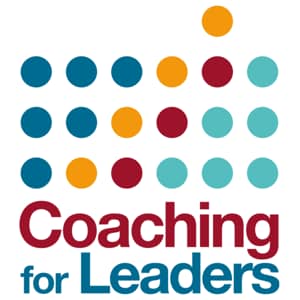Welcome to the fourth episode of Coaching Skills for Leaders! Today's topic: What is coaching and why it's different from other development tools.
Here's the link I promised to the EDS commercial on building a plane in the air.
Visit CoachingforLeaders.com/feedback with questions, comments, or feedback.
Socrates said, “The beginning of wisdom is the definition of terms.” (accidentally attributed to Plato in the audio of the show – apologies!)
Let's look at: leading, managing, training/teaching, mentoring, consulting, counseling, and of course coaching.
Leading: Creating environments that achieve a shared vision.
- Peter Senge describes a shared vision in The Fifth Discipline
- The rose windows at Notre Dame Cathedral in Paris are a good analogy
- John F. Kennedy's shared vision to get us to the moon
Managing: Establishing, monitoring, and controlling processes and procedures
- Communicating clear expectations
- Follow-up
- Feedback or consequences
- My work at SCORE! Educational Centers was an example of management in action
Training/Teaching: Transferring information from a knowledgable party to a less knowledgable party
- Lynda.com is a great example of online training
- This podcast is also an example
Mentoring: Providing advice and perspective from experience
- Generally this is someone who knows a lot about a process
- My parents have provided lots of mentoring for me: insurance, home, investments, etc.
- It's less about the position and more about what you are communicating
Consulting: Making recommendations based on expertise
- Clients hire Bonni (my wife) for her expertise in eLearning
Counseling/Therapy: Helping an individual reframe the past in order to improve the future
- Don't do it as a leader
- Refer people to human resources, employee assistance programs, or a counseling center (at a university)
A note about coaching definitions:
- Coaching is a results-partnership. True, but too general.
- International Coach Federation says “Partnering with clients in a thought-provoking and creative process that inspires them to maximize their personal and professional potential.” Also true, but too general…and why only with clients?
- PCMA says, “The field of coaching is growing quickly, and is continually redefining and refining itself in the process. Even coaching and consulting experts do not always agree on precise meanings and applications.” Certainly true!
Kampa-Kokesch and Anderson (2001) review research and detail a process for coaching.
Coaching: Developing a person through the process of rapport, assessment, feedback, planning, implementation, and evaluation
- Rapport – Build the relationship and trust – FROM (see episode #2)
- Assessment – Prescription without diagnosis is malpractice – use observation, assessments, questioning
- Feedback – Data points for people to understand
- Planning – Make a flight plan
- Implementation – Work the plan
- Evaluation – How did we do?
Stay connected with the show on iTunes, our website, or on Facebook
I'd love your feedback on this show as well as any questions or topics you'd like me to address in future shows:
Visit CoachingforLeaders.com/feedback with questions, comments, or feedback.
See you in a week for the next episode!






